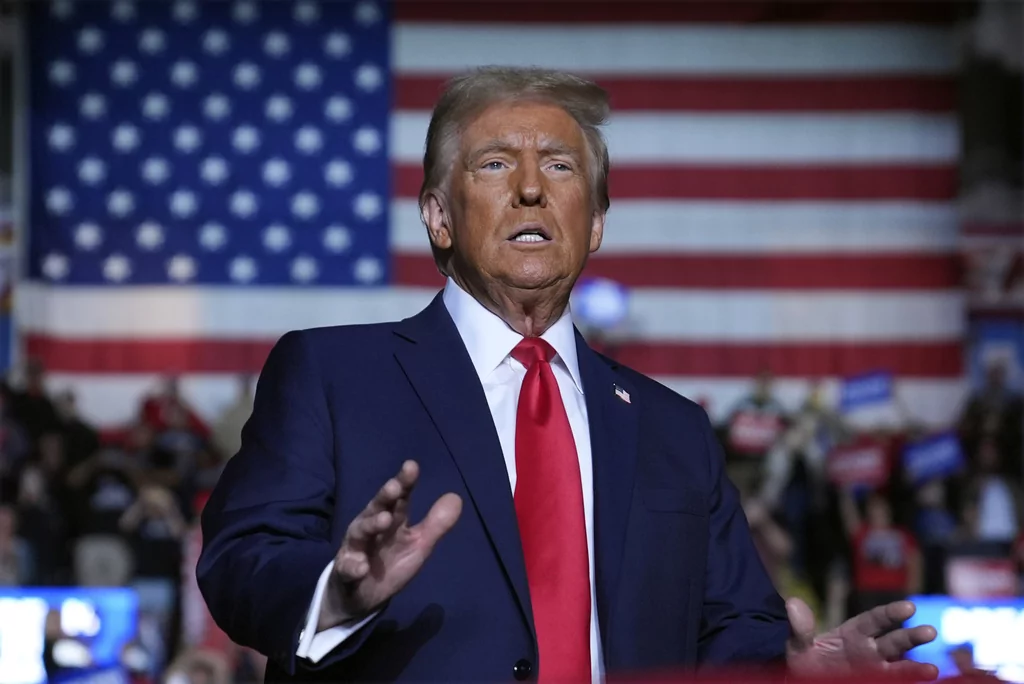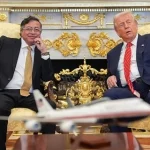

The election of President-elect Donald Trump and a Republican Senate victory could be the nail in the coffin for the World Health Organization’s pandemic accord, a governing document proposed by the international public health body in the wake of the COVID-19 pandemic that has yet to be passed by member states.
The pandemic accord, which is meant to coordinate international cooperation during a disease outbreak to prevent the next pandemic, had significant support from President Joe Biden and the Democrats despite a rocky road to gaining support with other WHO member states.
But a new Trump administration, along with Republicans in Congress, will likely take a more critical approach to international public health following the aftermath of the COVID-19 pandemic and the failure of the WHO to inform the world about the severity of the disease outbreak in China in January and February 2020.
“I would expect that there’s no way that the pandemic accords should get to the finish line, be ratified, or agreed to by the United States, which would really kneecap it, honestly,” Jennifer Kates, a global health policy specialist at the healthcare think tank KFF, told reporters on Friday.
The goal of the pandemic accord (officially known as the Pandemic Prevention, Preparedness, and Response Accord) is to address the flaws in global communication, oversight, and supply chains revealed by the international community’s handling of the COVID-19 pandemic.
The most controversial aspects of the agreement have been the allocation of financial responsibility for pandemic preparedness, including more open access to pathogens research and vaccines and antiviral treatments, which have raised intellectual property concerns among more economically developed countries.
The U.S. has been intimately involved in the negotiations of the pandemic accord since the beginning in 2021, with Kates describing the Biden administration as “very supportive” and “very engaged” in the negotiations process.”
“Republicans in Congress, not so much,” Kates said.
In September, a bill that would require the Senate ratification of “any convention or agreement on pandemic-related issues” passed the House by a vote of 219 to 199. The legislation was referred to the Senate Committee on Foreign Relations before the 2024 elections.
Kates says that Republicans generally have a history of being skeptical of international agreements, particularly those that could infringe on state sovereignty.
Other WHO member states had similar concerns with the limitations on national sovereignty in the original text of the accord.
Although the WHO characterized sovereignty concerns as the result of “the torrent fake news, and disinformation and misinformation, directed at the pandemic agreement negotiations,” the draft text of the accord was updated in December 2023 to stress that state parties would be protected under international law “to legislate and to implement legislation in pursuance of their health policies.”
Even with these changes in place, disagreements between member states during what was supposed to be the final vote in May over the language and legal weight of the accord led to the decision to postpone the final vote until May 2025.
Kates predicted that even if a new version of the pandemic accord were to pass during the international voting session next year, it will likely not have much success should the U.S. not participate, akin to the failure of the League of Nations, an international peace body founded in the 1920s to prevent World War II.
The Senate is the only congressional body in the U.S. to ratify treaties, making Republican control of the body a significant hurdle for supporters of the accord.
WHO relationship on the whole
Although Trump said during the campaign that he had “concepts of a plan” for Obamacare reform, he and his team provided little other substantive policy proposals to signal what to expect from health policy in his next administration, much less on issues of international public health.
In May 2020, Trump threatened to withdraw U.S. membership to the WHO along, with its $400 million in funding, about 15% of the organization’s operating budget. By that June, Trump canceled $62 million in funding for the WHO and established the U.S. withdrawal date for July 2021. Both of those decisions were quickly reversed by Biden.
Kates said that she “would fully expect the Trump administration to try to do that again,” which would be even more likely with a Republican majority in both chambers of Congress.
Suggesting broader reforms to the WHO and America’s relationship with the international body has also been a focus of Republicans in Congress during the Biden years.
Rep. Brad Wenstrup (R-OH), the chairman of the Select Subcommittee on the Coronavirus Pandemic, led the charge on the House side to reevaluate the U.S.-WHO relationship in light of the organization’s role in obscuring China’s COVID-19 policy during the early stages of the pandemic.
Wenstrup, who did not seek reelection in 2024, emphasized the need for the WHO to assert greater independence from the Chinese Communist Party, which will likely remain a goal for the next Trump administration.
Although the subcommittee, as part of the House Oversight Committee, does not have jurisdiction to introduce legislation, America’s relationship with the WHO is likely to be a portion of the subcommittee’s final report on its investigation of the origins of the coronavirus and pandemic-era policy. The report will likely be a springboard for the next legislative session.
Larry Levitt, KFF’s vice president for health policy, told reporters on Friday that very little is known about what Trump will choose on most matters of health policy in his next administration since he and his team were vague on the topic during the campaign.
“A lot of what we have to go on is Trump’s record from his previous term as president, as well as proposals from Republicans in Congress and conservative groups,” Levitt said. “There’s a lot of tea leaf reading in trying to anticipate what might happen.”





